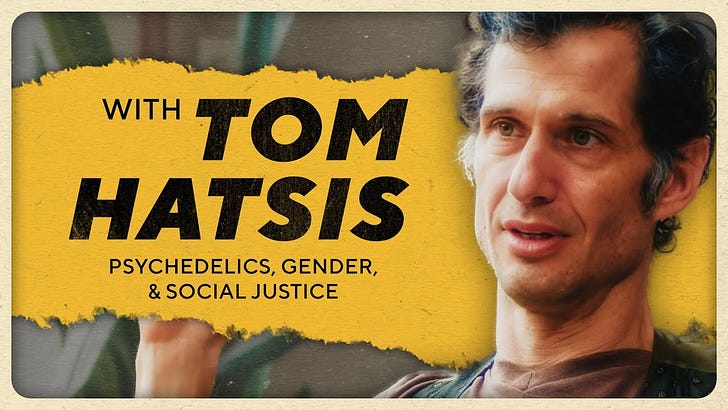Psychedelic historian Tom Hatsis was an atheist until he tried psychedelics. Then he went from atheist to theist. Psychedelic encounters reshaped his understanding of the divine.
In our conversation, Hatsis and I dove into the enigmatic world of psychedelics, exploring their history, safety, and transformative potential. Hatsis, a meticulous researcher, unpacked the distinctions between DMT, Ayahuasca, psilocybin mushrooms, and 5-MeO-DMT, each offering unique pathways to altered states of consciousness.
As psychedelic use surges, questions linger: Are they safe? Are they medicine? Do they open gateways to other realities or connect us to the divine? Hatsis emphasized that the psychedelic experience hinges on three critical factors: environment, mental state, and dosage. The physical and cultural setting, alongside one’s emotional readiness, shapes the journey. Psychedelics amplify what’s already present—fear, hate, or uncertainty can spiral into chaos, while love, trust, and connectedness can blossom into a transcendent experience. This amplification underscores their power and their risk.
Hatsis views psychedelics as medicine—not in a reductive, pharmaceutical sense, but as tools for holistic well-being when used with intention and care. The right conditions, he argues, can yield benefits that ripple into everyday life, enhancing emotional resilience and interconnectedness.
In his latest book, Psychedelic Injustice, Hatsis warns of a growing obstacle: Ideological dogmas infiltrating institutions studying psychedelics and communities that use them. Psychedelic Injustice offers a cogent, poignant critique of how rigid beliefs are stifling progress and hindering the potential to help people through responsible psychedelic use. This tension raises critical questions: Are psychedelics truly medicine, capable of healing mind and spirit? Do they unlock alternate realities, as some claim, or merely reveal the depths of our own consciousness? And could they be a bridge to the divine, as Hatsis’s journey suggests? In every one of these questions lurks an ideology that prevents honest answers—and this is what Hatsis writes so lucidly about.
Psychedelics remain a paradox—both ancient and cutting-edge, revered and controversial. Hatsis’s insights challenge us to approach them with reverence, skepticism, and curiosity. As society re-embraces these substances, their true potential may lie not in escaping reality, but in reconnecting us to ourselves, each other, and… perhaps something greater?



As someone who many many many yeas ago did A LOT psychedelics. (name it, I did it) A Word of caution. Be Careful. This stuff is Very Dangerous!
Wow! When they say “Leftists ruin everything.”, they weren’t kidding.